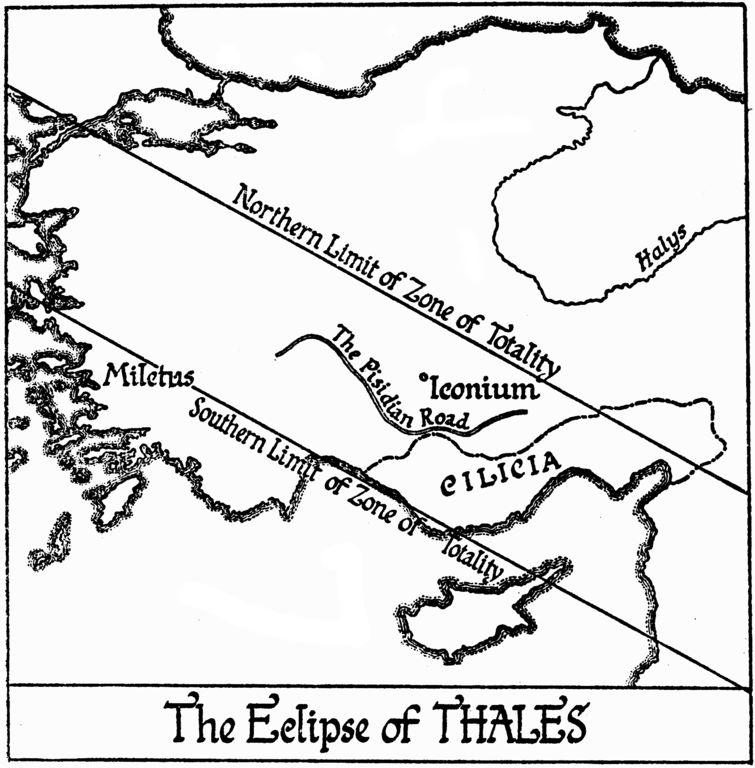Picture this: two raging kings have been at war for five years now.
Both kings decide to call a truce.
According to an account written by Greek historian Herodotus, the battle took place in Asia Minor.

This went down in history as the Battle of the Eclipse.
Thales of Miletus
The eclipse occurred on May 28, 585 B.C.
Herodotus suggests that Greecian astronomer and mathematician, Thales of Miletus, had predicted it way before it happened.

This was why the eclipse also came to be identified as the Eclipse of Thales by many.
Yet any calculations that can gauge the coming of an eclipse can predict it down to the exact time.
A solar eclipse did in fact occur on this date, but it was too small to be significant.

Another loophole is the accuracy of Herodotuss account when compared with the data of previous cycles.
Many say that the Babylonians kept extensive records.
It is plausible that his accomplishments were aggrandised by staunch followers over time.
Herodotuss chronology is questionable as well.
As Herodotus described the coming of the eclipse, he said day suddenly became night.
The eclipse began near river Halys at 5:30pm and peaked around 6:25pm.
Despite questions and constructions, the truth of the historical event has remained unfazed against the scrutiny of time.
It was at the Battle of the Eclipse that Medians and Lydians finally met with peace.
References#Wired#Thales Eclipse#On the Eclipse of Thales, Cycles and Probabilities